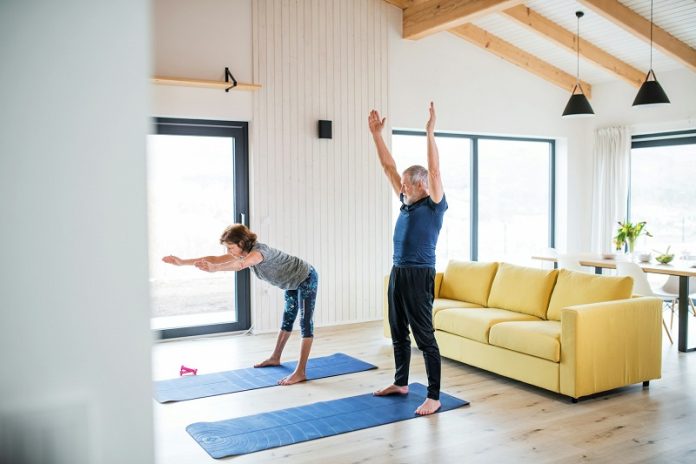
A team of researchers from Neuroscience Research Australia (NeuRA) and UNSW has discovered a fun and effective way to help people over 65 avoid falls. Their solution? ‘Gamified’ step exercises that can be done at home.
These exercises were found to reduce the number of falls by 26% compared to a control group, according to the study published in Nature Medicine.
With an increasing number of older adults in the population, effective strategies to prevent falls are becoming crucial. Falls are not only common in this age group but can lead to serious health issues and loss of independence.
Dr. Daina Sturnieks, the lead author of the study and Senior Research Scientist at NeuRA and UNSW Sydney, focused on making balance exercise fun and easy.
They introduced smart±step, an exercise gaming console that allows older adults to enjoy balance-challenging games at home without needing a therapist’s assistance.
In the study, 769 community-dwelling individuals over 65 participated. They were asked to engage in smart±step exercise games for 120 minutes each week for a year.
Their experience was compared with a control group who only received a public health pamphlet about preventing falls.
The results were encouraging: 36% of the exercise group experienced a fall during the study period, while 48.2% of the control group did.
However, the researchers noted a limitation: the participants were mainly well-educated and high-functioning older people, so the findings might not apply to frailer individuals.
Additionally, participants knew which group they were in, which could have influenced their expectations and possibly contributed to a placebo effect.
Why opt for gamified exercises to prevent falls? Falls are a leading cause of injury and death among older adults, and balance-challenging exercises are known to be effective in preventing them.
However, these exercises can quickly become monotonous and are often abandoned. Gamifying these exercises makes them more engaging and motivates participants to continue.
smart±step connects to a television and uses a step mat as a controller. Players can select games that require them to step on target panels on the mat, making the exercises both physically and cognitively challenging.
The dual benefit of these ‘exergames’ is significant. Not only do they offer physical exercise, but they also provide cognitive training.
Players must think quickly and react in a timely manner, which keeps the brain active and contributes to healthy aging. The games, ranging from treasure hunts to obstacle avoidance, require quick thinking and coordination.
This innovative approach to fall prevention showcases the potential of combining physical and cognitive training in a fun, engaging format, potentially transforming the way we approach health and exercise in our later years.
If you care about bone health, please read studies that plant-based diets can harm your bone health without these nutrients, and this bone problem may strongly increase COVID-19 death risk.
For more information about wellness, please see recent studies that too much of this vitamin may increase your risk of bone fractures, and results showing this type of exercise may protect your bone health, slow down bone aging.
The research findings can be found in Nature Medicine.
Copyright © 2024 Knowridge Science Report. All rights reserved.



